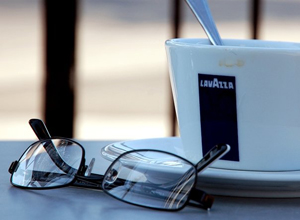
Let me tell you one thing that's true about me.... I LOVE coffee! OK fine... love is not a word that you use for a beverage, but that's not the issue here. What I meant was that, I'm a 'coffeeholic'! I drink coffee every day, it was my best-friend in college, and I don't understand why some people don't like it. A sign of addiction? Maybe. Let's examine this a little further.
According to Dr. Kim Hellmans, my psychology professor at Carleton U, addiction is syndrome that manifests “a loss of control over a reward-seeking behavior”. That's really just a scientific way of saying "you don't know when to stop". Aside from that, addiction has to meet three criteria: dependence, tolerance, and withdrawal. Thus, when a person develops a physical dependence on drinking coffee, and shows withdrawal symptoms from not taking it, he or she may appear addicted to coffee. However, due to insufficient evidence of developing tolerance to coffee, the criteria for addiction are not fully satisfied. Have you noticed how you don't really increase your coffee consumption? It's pretty much the same every day, right? That means you haven't developed tolerance to coffee. You also know when you've had enough, correct? Thus, coffee is not addictive.
So what's the deal with 'coffeeholics'?
 Coffee is habit-forming
Coffee is habit-formingCoffee is known for its drug component called caffeine. Caffeine is a mild stimulant that enhances performance and increases alertness. Say I need an extra boost to study for an exam or finish up a project, drinking coffee may be beneficial. Due to caffeine’s positive effects, drinking coffee becomes a reinforced behavior. Reinforcement makes you do things over and over again, and could eventually become a habit. Hence, drinking coffee is not an addiction, it’s simply habit-forming. Some people may not even have a craving for it. It just happens that drinking coffee is part of their daily routine. Generally, coffee drinkers wake up in the morning and grab a cup of coffee without even paying attention to their behavior. There's no harm in this, but mind you, there are some things that you do have to watch for...
Caffeine Effects
Drinking coffee allows the absorption of caffeine through the gastrointestinal tract. Its effects kick in quickly after 15 to 45 minutes from ingestion. It peaks in 2 hours, and can last up to 3 to 5 hours. Depending on the dose and characteristics of the person, caffeine’s stimulating effects may vary. Generally, caffeine improves endurance and enhances task performance by making the person feel more awake and vigilant. However, when it comes to decision-making task, caffeine may cause impairment. So try to know your personal threshold.
Toxic Effects and Health Concerns
Consuming large doses of caffeine may lead to a condition called caffeinism. This may develop when a person consumes 600 mg of caffeine per day (roughly 4 to 6 cups a day). Some of its symptoms include muscle twitching, cardiac arrhythmia, tremors, increased need to urinate, and insomnia. Caffeine can also be lethal. Yup, you could die! So you do need to be careful. If you're an adult, avoid drinking more than 10 grams of caffeine, while 100mg/kg in children. These are considered lethal dosages.
Pregnant or nursing women must be aware that caffeine is distributed throughout the body. It could cross the placenta, and small proportions of caffeine could be excreted in breast milk. Children also have a risk of exposure to caffeine, thus, their caffeine consumption should be monitored. Or, just don't let them drink coffee, OK? That would probably be the best rule. Besides, I don't think you want your kid bouncing off the walls. Finally, those who have pre-existing health problems should consult their physician before consuming caffeine.
So, what to do if you love coffee?
Don’t worry. Large amount of coffee needs to be consumed before it could pose a concern. Coffee certainly has that “emotional” appeal that coffee lovers are unable to resist. So, if coffee is your thing, go ahead... have cup and enjoy!
__________________________
Sources:
Statistics Canada, 2004 Canadian Community Health Survey. Coffee consumption peaks at ages 31 to 50. Men and women tend to consume 639 grams and 586 respectively.
Hellmans, Kim. Neuroscience professor. Carleton University, Ottawa, ON, Canada.
Drug Use and Abuse, 5th Edition by Maisto et al. Thomas Wadsworth (2008).
No comments:
Post a Comment